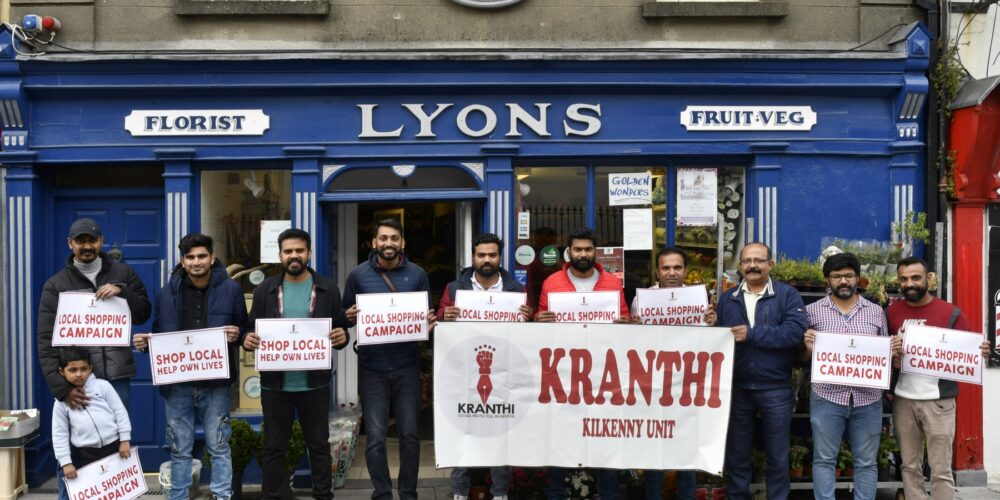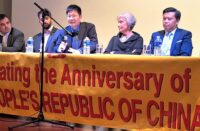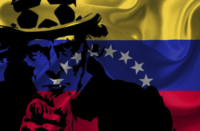The brutal attack and humiliation of an Indian immigrant in Tallaght, based on false narratives, is contemptible and abominable. There have been racially motivated attacks in Ballymena earlier, and violence targeting immigrants in Dublin a year ago. What used to be isolated attacks are growing into an epidemic; a Pakistani doctor was a target of racial abuse in Donegal. In Waterford, even a six-year-old child was not spared from attacks and racial abuse. Inaction from law and order authorities will only embolden right-wing lumpen elements. The government must conduct a study to understand the depth of the danger and the psychology behind these brutal attacks, especially when they involve juveniles.
Irish culture is rich and has always stood against all forms of oppression, including anti-imperialist oppression of which racism is a by-product. The people behind these attacks do not represent Ireland; it is people like Jennifer Murray, the brave woman who saved the victim in the Tallaght incident from the attackers, who represent the true Ireland.
Immigrants who work and contribute to Irish society are living in constant stress and under the threat of racist attack. In the case of the Pakistani doctor from Donegal, she is contemplating leaving the country, fearing for her life. Until the government addresses the issue and follows it with concrete actions, it will not instil confidence among migrant communities.
In a capitalist world, the conditions of migration are created by capitalism itself: colonialism, which forced labour from one part of the world to another for profit; neo-colonialism, which creates harsh living conditions through neoliberal exploitation, forcing people to migrate for better lives; imperial interventions; globalisation, which facilitates the movement of capital and labour to enable the accumulation of capital; and climate change, throttled by the capitalist mode of production since the industrial revolution. Ireland itself experienced mass emigration to the United States during and after the famine of 1845—an artificial famine caused by imperialist plunder, not by natural causes alone.
Racist division in an increasingly multicultural country like Ireland, which has already suffered from sectarianism—the wounds of which are still healing—is unaffordable and will have dire consequences. Any nation that wants to develop must make a long-term vision to use its most important resource: human resources.
Liberty, equality, and fraternity are slogans of the French Revolution (1789); the reason they remain a distant dream is that capitalism is incompatible with these values. Wage slavery requires the exploitation of labour, for which unity is a hindrance; the wedge of racism keeps labour divided. Capitalism requires inequality, and racism enshrines it.
The history of migration begins from the days humans migrated from Africa to populate the world. Humans have a predisposition for xenophobia from primitive times towards other tribes, driven by fear of attack, diseases, and competition for natural resources. In modern societies, democratic structures are instituted to control these base instincts, protect minorities, and foster cooperation. The litmus test for any democracy is the acceptance of diversity. One of the greatest intellectuals India has ever produced, Dr. Ambedkar, said, “Democracy is the right to be different and not to be hunted on the basis of the difference.”
With the emergence of capitalism, the creation of nation-states also created the passion of nationalism, which created the “other”. The trait of hyper-nationalism that the right-wing possesses spreads hate for the “other”, erasing humanism—a refusal to accept that we may not be identical, but we are all equal.
The “othering” on the basis of colour, race, and ethnicity is done to spread hate and create stereotypes. Earlier, the Irish people were themselves victims of stereotyping—labelled as lazy and violent—by racists. This stereotyping of immigrants is intended to make them vulnerable to attack and to justify it.
Imperialism could only justify the inhuman exploitation of colonies with racism and social Darwinism—a pseudo-science that uses the phrase “survival of the fittest” in a context far removed from its original meaning to argue that some races are superior to others and that racism is therefore right.
Racism is not natural; it has roots in a mode of production based on profits. Racism and capitalism go hand in hand. In a modern world where science is pondering planetary migrations in the future to sustain life, to hate migration and attack migrants is to be archaic and regressive. Ireland is too great a country to accommodate racism and anti-immigrant sentiments. It is those who spread hate that make Ireland a dangerous place, not immigrants.
It is a relief that a majority of Irish people understand the role of migration in Irish history and that the attacks are the mischief of a tiny minority, spread to project immigration as the cause of all problems and its cessation as the solution. The government must come up with measures to eradicate the scourge of racism from Irish society, but the permanent solution is for working people to unite—across divisions of race, gender, colour, and ethnicity—go beyond capitalism, and fight for a socialist Ireland.






